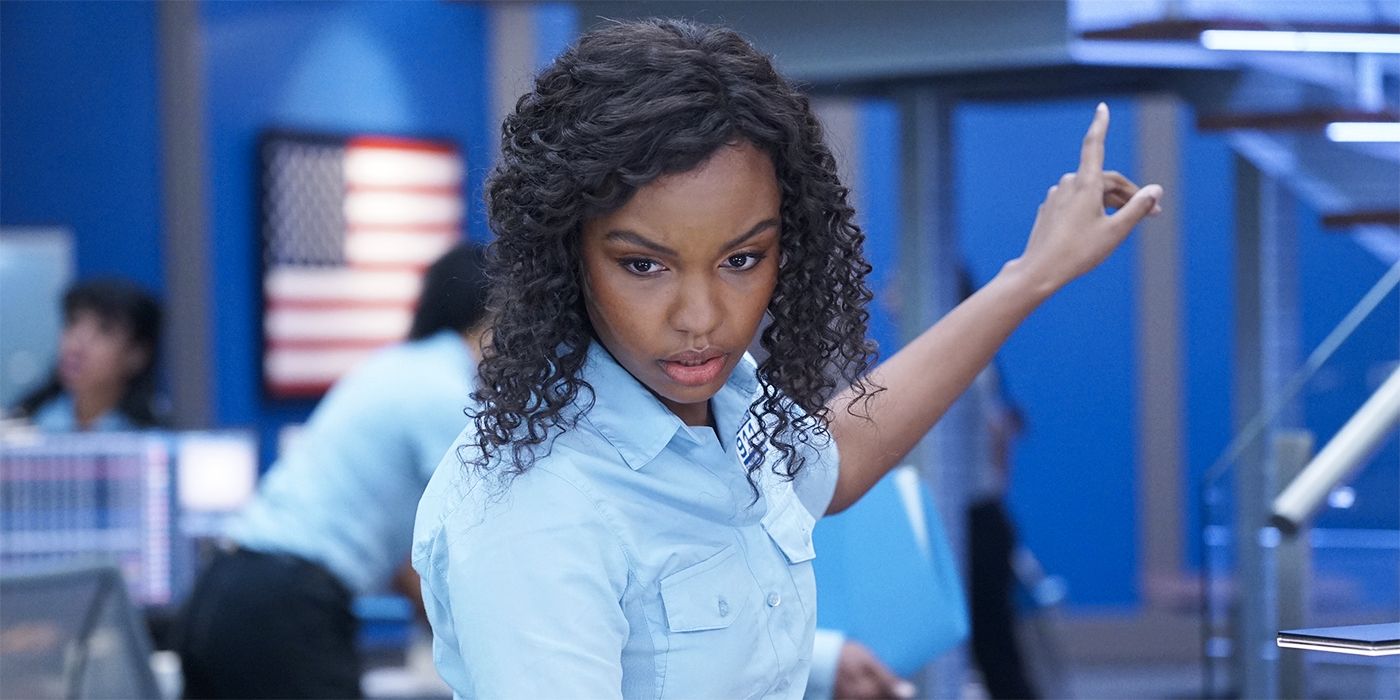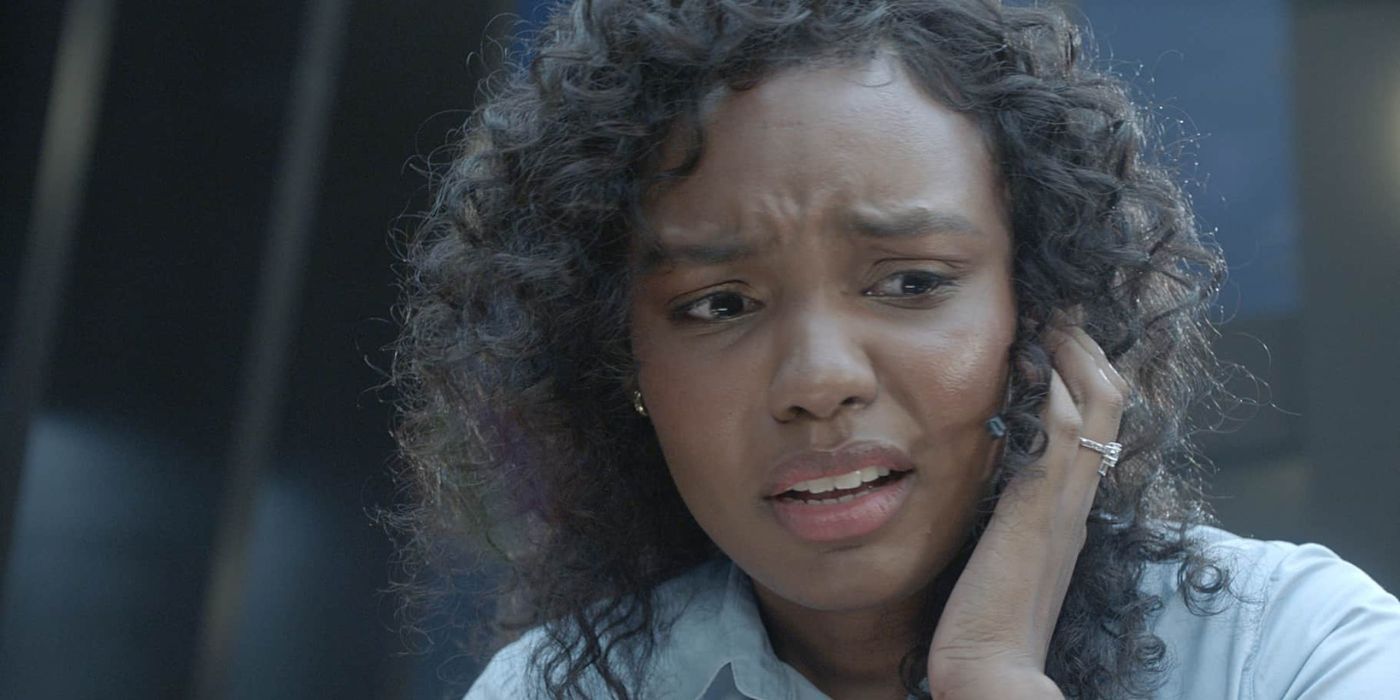Since the premiere of Fox’s 9-1-1, we have gotten a dramatized glimpse at the lives of the first responders who put their well-being at risk to help others in need. It’s most notable with the firefighters, paramedics, and police, as they are the ones out in the field facing imminent danger more often than not. However, the series has also never shied away from showing the toll on a person’s mental health as a 9-1-1 dispatcher, the first line of contact in an emergency. We’ve seen this with Abby (Connie Britton), Maddie (Jennifer Love Hewitt), Josh (Bryan Safi), and even May (Corinne Massiah). However, 9-1-1: Lone Star, the spin-off now well into its fourth season that follows Owen Strand (Rob Lowe) and his team in Texas, has never offered as much attention or placed enough importance on the call center as the original. This is an enormous mistake. Highlighting this aspect of emergency response has often led to some of the original’s most emotional and powerful moments, which is why we need to see much more of it going forward.
‘9-1-1: Lone Star’ Hasn’t Fleshed Out the Call Center
Compared to the original, 9-1-1: Lone Star vastly underutilizes the call center. In Los Angeles, there’s an entire call center team with familiar faces; it’s not just about Maddie’s role there. In Austin, we have the immaculate and exceptional Grace Ryder (Sierra McClain) as the most impressive dispatcher around, but that’s basically it. Sure, there are one or two other faces that pop up, but they are very minor characters whose names do not come to mind. (Sorry.) For four seasons, it has primarily been Grace single-handedly taking those calls or, on occasion, someone faceless to kickstart an emergency if Grace isn’t at work. This fact alone speaks volumes about how the call center is looked at by the writers on each show. So much of Maddie’s growth on 9-1-1 has been a result of her work at the call center and the team that surrounds her. She’s helped to stop someone hanging up on callers, faced her abusive ex-husband and coped with receiving emergency calls from others in similar situations, and even survived the call center being taken hostage in the third season. The emergency calls lead to powerful moments for Maddie and/or the guest stars involved, making these stories matter more in each episode — not just on special occasions. Altogether, over the last five and a half seasons, 9-1-1 has told compelling stories with the call center, showcasing their heroism and what it takes to do the job. On the other hand, 9-1-1: Lone Star seems to have forgotten that, which is limiting the emotional impact of the series and what they are doing with Grace.
‘9-1-1: Lone Star’ Doesn’t Seem to Take Dispatchers Seriously
Given the lack of balance between the characters, as nearly everything on Lone Star needs to come back around to be about Owen, it’s entirely unsurprising that this is a major issue for the spin-off series. However, it’s truly a shame because we, the audience, are missing out on so much. From what we have seen, it’s obvious McClain is an incredibly talented performer. The stories Grace has had have nearly all been fantastic. A recent example is from the fifth episode of Season 4, where Grace finds herself receiving emergency phone calls from a young boy named Linus (Mason Blomberg). Except, his calls aren’t about emergencies. The first time is about his homework, as Linus tells Grace a little about his mother and why he’s panicking over math. The second is about a burned dish as he attempted to make himself dinner. In both, Grace heard slurred speech from the mother that made her worried about whether Linus was in an unsafe situation. Long story short, Grace managed to save the mother’s life as she had a stroke, keeping her alive and helping Linus in the process. These are the underrated stories, not involving fire or special effects, that help this universe stand out in an overly-crowded television line-up. There’s also Grace’s call with the dying astronaut in the first season’s finale, which will never stop being a shining example of the emotion 9-1-1: Lone Star can bring to the table (if it cared to). Bringing in more of these stories is such an important way the series can start to bring in the emotional stakes it is severely lacking, which is partially why few care about this show as much as the original. Instead, the spin-off focuses more on the action and shock value of the emergencies that the 126 and Carlos (Rafael Silva) respond to, ultimately leading to them underutilizing Grace and the call center.
In short, Grace is one of the bright lights of 9-1-1: Lone Star, and always has been. Her stories stand out as some of the best we’ve seen on either show, and it’s baffling that the writers don’t take advantage of McClain’s incredible talent far more often. We need more of Grace, but particularly more of Grace while at work receiving the same focus and care that Maddie and the others have on the flagship series. While Grace’s relationships with her husband Judd (Jim Parrack) and best friend Tommy (Gina Torres) are also wonderful to watch, the series refusing to focus on and acknowledge how important the call center is on a consistent basis only hurts Grace and the show. There is so much potential for growth, healthy change, and learning more about a character when they’re in the intense situation of being a dispatcher. The spin-off doesn’t do nearly enough to embrace that. The call center should be one of the vital components of the series, but it feels like 9-1-1: Lone Star could choose to get rid of it at any moment and things would continue on without much change. (Not that they would, but that’s how little care they put into it.)
9-1-1: Lone Star continues Tuesdays on Fox. Every episode is now streaming on Hulu.



